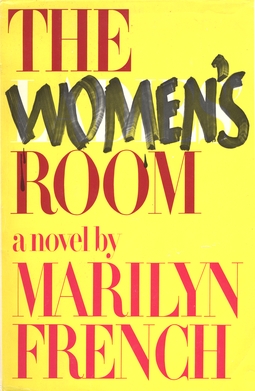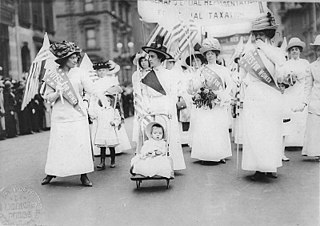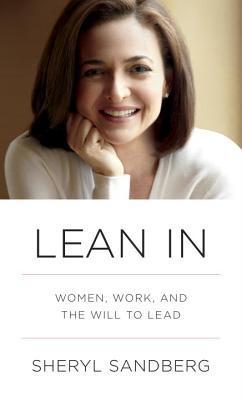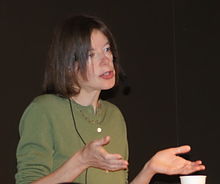
Warren Thomas Farrell is an American political scientist, activist, and author of seven books on men's and women's issues. Farrell initially came to prominence in the 1970s as a supporter of second wave feminism but has since become a leading figure of the men's rights movement. He served on the New York City Board of the National Organization for Women (NOW). Farrell advocates for "a gender liberation movement", with "both sexes walking a mile in each other's moccasins".

Gloria Marie Steinem is an American journalist and social-political activist who emerged as a nationally recognized leader of second-wave feminism in the United States in the late 1960s and early 1970s.
Susan Griffin is a radical feminist philosopher, essayist and playwright particularly known for her innovative, hybrid-form ecofeminist works.

Ms. is an American feminist magazine co-founded in 1971 by journalist and social/political activist Gloria Steinem. It was the first national American feminist magazine. The original editors were Letty Cottin Pogrebin, Mary Thom, Patricia Carbine, Joanne Edgar, Nina Finkelstein, Mary Peacock, Margaret Sloan-Hunter, and Gloria Steinem. Beginning as a one-off insert in New York magazine in 1971, the first stand-alone issue of Ms. appeared in January 1972, with funding from New York editor Clay Felker. It was intended to appeal to a wide audience and featured articles about a variety of issues related to women and feminism. From July 1972 until 1987, it was published on a monthly basis. It now publishes quarterly.
A backlash is a strong adverse reaction to an idea, action, or object. It is usually a reflection of a normative resentment rather than a denial of its existence. In Western identitarian political discourse, the term is commonly applied to instances of bias and discrimination against marginalized groups. In this form of discourse, backlash can be explained as the response- or counter reaction- to efforts of social change made by a group to gain access to rights or power.

Barbara Ellen Kingsolver is a Pulitzer Prize-winning American novelist, essayist, and poet. Her widely known works include The Poisonwood Bible, the tale of a missionary family in the Congo, and Animal, Vegetable, Miracle, a nonfiction account of her family's attempts to eat locally. In 2023, she was awarded the Pulitzer Prize for Fiction for the novel Demon Copperhead. Her work often focuses on topics such as social justice, biodiversity, and the interaction between humans and their communities and environments.
Postfeminism is a term popularized by the mass media to describe an alleged decrease in support for feminism from the 1990s onwards. It can be considered a critical way of understanding the changed relations between feminism, femininity and popular culture. The term is sometimes confused with subsequent feminisms such as fourth-wave feminism, postmodern feminism, and xenofeminism.

Shulamith Bath Shmuel Ben Ari Firestone was a Canadian-American radical feminist writer and activist. Firestone was a central figure in the early development of radical feminism and second-wave feminism and a founding member of three radical-feminist groups: New York Radical Women, Redstockings, and New York Radical Feminists. Within these radical movements, Firestone became known as "the firebrand" and "the fireball" for the fervor and passion she expressed towards the cause. Firestone participated in activism such as speaking out at The National Conference for New Politics in Chicago. Also while a member of various feminist groups she participated in actions including protesting a Miss America Contest, organizing a mock funeral for womanhood known as "The Burial of Traditional Womanhood", protesting sexual harassment at Madison Square Garden, organizing abortion speakouts, and disrupting abortion legislation meetings.
Antifeminism, also spelled anti-feminism, is opposition to feminism. In the late 19th century and early 20th century, antifeminists opposed particular policy proposals for women's rights, such as the right to vote, educational opportunities, property rights, and access to birth control. In the mid and late 20th century, antifeminists often opposed the abortion-rights movement.

Backlash: The Undeclared War Against American Women is a 1991 book by Susan Faludi, in which the author presents evidence demonstrating the existence of a media-driven "backlash" against the feminist advances of the 1970s in the United States.

Stiffed: The Betrayal of the American Man is a 1999 book by feminist author Susan Faludi, her followup to Backlash: The Undeclared War Against American Women. The book addresses the state of masculinity in late-20th-century America.

Alix Kates Shulman is an American writer of fiction, memoirs, and essays, and a prominent early radical activist of second-wave feminism. She is best-known for her bestselling debut adult novel, Memoirs of an Ex-Prom Queen, hailed by the Oxford Companion to Women's Writing as "the first important novel to emerge from the Women's Liberation Movement."

The Women's Room is the debut novel by American feminist author Marilyn French, published in 1977. It launched French as a major participant in the feminist movement and, while French states it is not autobiographical, the book reflects many autobiographical elements. For example, French, like the main character, Mira, was married and divorced, and then attended Harvard where she obtained a Ph.D. in English Literature. Despite the connection of The Women's Room to the feminist movement, French stated in a 1977 interview with The New York Times: "The Women's Room is not about the women's movement … but about women's lives today."

Feminism is aimed at defining, establishing, and defending a state of equal political, economic, cultural, and social rights for women. It has had a massive influence on American politics. Feminism in the United States is often divided chronologically into first-wave, second-wave, third-wave, and fourth-wave feminism.

Who Stole Feminism? How Women Have Betrayed Women is a 1994 book about American feminism by Christina Hoff Sommers, a writer who was at that time a philosophy professor at Clark University. Sommers argues that there is a split between equity feminism and what she terms "gender feminism". Sommers contends that equity feminists seek equal legal rights for women and men, while gender feminists seek to counteract historical inequalities based on gender. Sommers argues that gender feminists have made false claims about issues such as anorexia and domestic battery and exerted a harmful influence on American college campuses. Who Stole Feminism? received wide attention for its attack on American feminism, and it was given highly polarized reviews divided between conservative and liberal commentators. Some reviewers praised the book, while others found it flawed.

Lean In: Women, Work, and the Will to Lead is a 2013 book encouraging women to assert themselves at work and at home, co-written by business executive Sheryl Sandberg and media writer Nell Scovell.

The Terror Dream: Fear and Fantasy in Post-9/11 America is a 2007 book by Susan Faludi, in which the author argues that the terrorist acts of September 11, 2001 resulted in an attack on feminism. In 2007, the book was a finalist for the National Book Critics Circle Award for Criticism.
The Women's Room is a 1980 American made-for-television drama film directed by Glenn Jordan and starring Lee Remick, Ted Danson, Colleen Dewhurst and Tovah Feldshuh. In spite of Esther Shapiro's struggle with the network to release the film despite its feminist content, "The Women's Room finally aired, and it received a huge 45 share, prompted a raft of positive mail, and won an Emmy".

In the Darkroom is a memoir by Susan Faludi that was first published on June 14, 2016. The memoir centers on the life of Faludi's father, who came out as transgender and underwent sex reassignment surgery at the age of 76. It won the 2016 Kirkus Prize for nonfiction and was a finalist for the 2017 Pulitzer Prize for Biography or Autobiography.
















